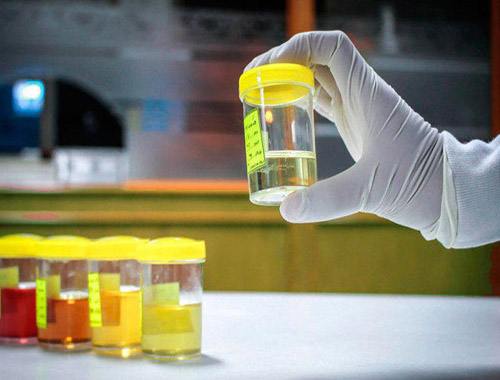Hypercalciuria

Published: 18 Jun 2025
ICD9: 275.42 ICD10: E83.52 ICD11: MF98.0
Hypercalciuria is a condition characterized by excessively high levels of calcium in the urine.
It's diagnosed when the amount of calcium excreted in the urine exceeds the normal range. This excess calcium can lead to several problems, including:
![]() Kidney stones: Calcium is a major component of many kidney stones. Increased calcium in the urine raises the risk of stone formation.
Kidney stones: Calcium is a major component of many kidney stones. Increased calcium in the urine raises the risk of stone formation.
![]() Hematuria: microscopic or visible blood in urine
Hematuria: microscopic or visible blood in urine
![]() Osteoporosis: in some cases, the body may draw calcium from the bones to compensate for losses in the urine, potentially leading to weakened bones over time.
Osteoporosis: in some cases, the body may draw calcium from the bones to compensate for losses in the urine, potentially leading to weakened bones over time.
![]() Bone pain
Bone pain
Causes of Hypercalciuria:
Hypercalciuria can result from various factors, including:
![]() Dietary factors: High calcium intake, high sodium intake, and diets high in animal protein can increase calcium excretion in urine.
Dietary factors: High calcium intake, high sodium intake, and diets high in animal protein can increase calcium excretion in urine.
![]() Medical conditions:
Medical conditions:![]()

![]() Hyperparathyroidism: An overactive parathyroid gland can lead to increased calcium levels in the blood and, consequently, in the urine.
Hyperparathyroidism: An overactive parathyroid gland can lead to increased calcium levels in the blood and, consequently, in the urine.![]()

![]() Renal tubular acidosis: A kidney disorder that affects the ability of the kidneys to regulate acid-base balance, which can lead to hypercalciuria.
Renal tubular acidosis: A kidney disorder that affects the ability of the kidneys to regulate acid-base balance, which can lead to hypercalciuria.![]()

![]() Sarcoidosis: A chronic inflammatory disease that can affect multiple organs, including the kidneys, leading to hypercalciuria.
Sarcoidosis: A chronic inflammatory disease that can affect multiple organs, including the kidneys, leading to hypercalciuria.![]()

![]() Cushing's syndrome: A hormonal disorder caused by prolonged exposure to high levels of cortisol.
Cushing's syndrome: A hormonal disorder caused by prolonged exposure to high levels of cortisol.![]()

![]() Vitamin D excess: Excessive vitamin D intake can increase calcium absorption from the gut, leading to hypercalciuria.
Vitamin D excess: Excessive vitamin D intake can increase calcium absorption from the gut, leading to hypercalciuria.
![]() Medications: Certain medications, such as loop diuretics and corticosteroids, can increase calcium excretion in the urine.
Medications: Certain medications, such as loop diuretics and corticosteroids, can increase calcium excretion in the urine.
![]() Idiopathic hypercalciuria: In many cases, the cause of hypercalciuria is unknown (idiopathic). This is often a familial condition.
Idiopathic hypercalciuria: In many cases, the cause of hypercalciuria is unknown (idiopathic). This is often a familial condition.
![]() Immobility: Prolonged periods of immobility or inactivity can lead to bone loss and increased calcium excretion.
Immobility: Prolonged periods of immobility or inactivity can lead to bone loss and increased calcium excretion.
Diagnosis:
Hypercalciuria is usually diagnosed through a 24-hour urine collection to measure the amount of calcium excreted in the urine over a 24-hour period. Blood tests may also be performed to check calcium levels in the blood and assess kidney function.
Treatment:
Treatment for hypercalciuria depends on the underlying cause and the severity of the condition. Common treatment strategies include:
![]() Dietary modifications: Reducing sodium intake, limiting animal protein consumption, and avoiding excessive calcium supplements. A registered dietitian can help create an appropriate meal plan.
Dietary modifications: Reducing sodium intake, limiting animal protein consumption, and avoiding excessive calcium supplements. A registered dietitian can help create an appropriate meal plan.
![]() Increased fluid intake: Drinking plenty of water helps dilute the urine and reduces the risk of kidney stone formation.
Increased fluid intake: Drinking plenty of water helps dilute the urine and reduces the risk of kidney stone formation.
![]() Medications:
Medications:![]()

![]() Thiazide diuretics: These medications can help reduce calcium excretion in the urine.
Thiazide diuretics: These medications can help reduce calcium excretion in the urine.![]()

![]() Potassium citrate: This medication can help reduce the risk of calcium oxalate stone formation.
Potassium citrate: This medication can help reduce the risk of calcium oxalate stone formation.![]()

![]() Phosphate supplementation: In some cases, phosphate supplementation may be used to reduce calcium excretion.
Phosphate supplementation: In some cases, phosphate supplementation may be used to reduce calcium excretion.
![]() Treatment of underlying medical conditions: Addressing underlying conditions such as hyperparathyroidism or renal tubular acidosis is crucial.
Treatment of underlying medical conditions: Addressing underlying conditions such as hyperparathyroidism or renal tubular acidosis is crucial.
Important Considerations:
![]() It's essential to consult with a doctor to determine the underlying cause of hypercalciuria and develop an appropriate treatment plan.
It's essential to consult with a doctor to determine the underlying cause of hypercalciuria and develop an appropriate treatment plan.
![]() Self-treating with supplements or dietary changes without medical supervision can be harmful.
Self-treating with supplements or dietary changes without medical supervision can be harmful.
![]() Monitoring urine calcium levels regularly is important to assess the effectiveness of treatment and prevent complications.
Monitoring urine calcium levels regularly is important to assess the effectiveness of treatment and prevent complications.
![]() If kidney stones are present, additional treatments such as lithotripsy (shock wave therapy) or surgery may be necessary to remove the stones.
If kidney stones are present, additional treatments such as lithotripsy (shock wave therapy) or surgery may be necessary to remove the stones.
In summary, hypercalciuria is a condition of high calcium levels in the urine, which can lead to kidney stones and other complications. Diagnosis involves urine and blood tests, and treatment focuses on addressing the underlying cause and reducing calcium excretion.